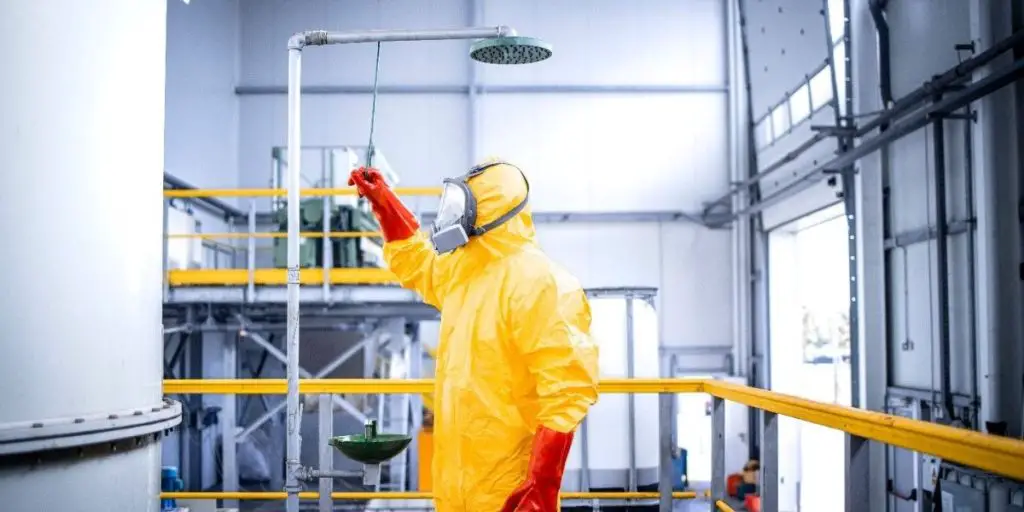Gas Safety Regulations for Landlords – Gas Checks that Every Landlord Must Know

The use of gas in residential, commercial, and business properties is a common practice in most parts of the world, including the UK. Generally, the use of gas is considered safe, but at the same time, the increasing number of gas-related accidents reflects that it cannot be ignored.
Considering the safety of the people and properties against the possible threats associated with the gas, various rules and regulations have been formulated by the authorities worldwide. Such legislation aims to make it safe and secure for people to use gas in residential properties. As amended occasionally, Gas Safety (Installation and Use) Regulations 1998 is the basic set of rules and regulations currently in vogue in the UK. It imposes responsibility for gas safety, mainly on the landlords.
The Landlords
By the dictionary, a landlord is a person who owns a property. For implementing the Gas Safety (Installation and Use) Regulations 1998, the term landlord refers to the person who lets his property to someone. This may be a residential property, holiday accommodation, or a rental room. Residential properties may include housing societies, hotels, and private ownership. Flats, cottages, and caravans come under the definition of holiday accommodation, whereas room rentals may include bedsits and private households. For more details on gas safety, check this link.
The landlords can be classified into different categories based on the duration of the rentals and the type of rentals being offered.
- Short Term – If a person lets his property for less than 28 days, he will be referred to as Short Term Landlord.
- Long Term – When you rent out your property for a period ranging between 28 days to 7 years, you will be termed as A long-term landlord.
- Long Term – When the tenancy is more than 7 years, it will also be a type of long-term landlord but here, the duties as landlord will apply as an implied tenancy.
- Letting or Managing Agent – Also referred to as “Agent.” An agent’s responsibilities are the same as a landlord’s for implementing the Gas Safety (Installation and Use) Regulations 1998.
Gas Safety Regulations for Landlords
While the basic law remains the same, as stipulated in the Gas Safety (Installation and Use) Regulations 1998, an amendment was made through “The Gas Safety (Installation and Use) (Amendment) Regulations 2018”.
The above law and its further amendment make it compulsory for landlords to conduct an annual gas safety check on their properties by hiring the services of a registered gas safety engineer. The gas safety engineer must be registered with the gas safe register.
The main points of the relevant gas safety law, as further amended in 2018, are summarized here.
- The landlords are required to ensure the safety of their tenants against the possible threats associated with the gas, such as fire, explosion, and generation of harmful gases.
- The landlords are bound to get their properties inspected for gas safety annually. A registered gas safety engineer must do this.
- Annual gas safety inspection must be conducted on all gas installations and appliances, including boilers and flues.
- The gas safety engineer will issue a gas safety certificate if the appliances and installations comply with the gas safety standards.
- Gas safety certificates, also known as gas safety records, will remain valid for 12 months. It must be renewed before the expiry of the current certificate.
- Renewal can be done in the last two months of the validity of the gas safety certificate.
- The landlords are bound to provide a copy of the gas safety certificate to their current tenants within 48 hours and 28 days to their new tenants.
- The responsibility of landlords is restricted to the gas appliances installed by them in the rented property. They are not responsible for the safety of appliances installed by the tenants. The tenants must ensure the safety of such appliances on their own. However, the gas safety engineer should also check these appliances during annual inspections.
- If one or more of the installed gas appliances develop some fault at any time, the landlords must arrange its inspection and removal of the faults. If recommended or suggested by the engineer, you may also be required to replace the faulty appliances for the safety of the tenants.
- Routine maintenance and servicing of the gas appliances, boilers, and flues is also the responsibility of the landlords.
Gas Checks that every landlord must know
As a landlord, you have some responsibilities per the relevant laws’ provisions. Let’s see what is expected from you as a landlord.
- Ensure the safety of your tenants. Conduct a comprehensive inspection of all gas appliances installed on your property by a qualified engineer who must be registered with the gas safe register.
- The engineer will give you a landlord gas safety record, commonly known as LGSR. It will have complete details of the appliances installed on your property that the engineer checked.
- You must get this done annually, preferably in the last two months before the expiry of the last inspection. The validity of this inspection is for 12 months.
- Your tenant is allowed to use his appliances on your property. Such appliances do not come under your area of responsibility, but it is better to include them in the annual inspection to ensure the safety of your property.
- Annual Gas Safety Check involves various steps, such as
– Visual inspection of gas installations and appliances.
– Checking gas burner pressure.
– Checking for any leakages.
– Examine the performance of the ventilation system.
– Check the working of the safety devices.
– Check boiler performance, including the pressure vessel. - After successfully inspecting all gas appliances, the gas safety engineer will provide you with a digital copy of the Gas Safety Certificate. This will be valid for 12 months and will require renewal on an annual basis.
- Keeping the gas safety record stored safely for at least two years is advisable. It may be helpful for you in so many situations.
- The landlord gas safety certificate will have important information such as the date of inspection, the address of the property inspected, details of each appliance checked with its current status, and the name and identification number of the survey engineer. Most importantly, it will also identify the faulty appliances and suggestions on how to remove the faults.
- For the appliances that are considered not fit for use, the gas safety certificate will reflect three different codes marked against them. These are ID, AR, and NCS. ID stands for “Immediately Dangerous,” AR means “At Risk,” whereas NCS denotes “Not to the Current Standards.” The appliances marked as ID or AR need to be replaced or repaired, as the case may be, urgently. However, the appliances rated as NCS can still be used but should be replaced with new ones ASAP.
- You must be aware of your right to enter the rented premises. You need to give prior notice at least 24 hours before your planned visit to the property, especially for conducting an annual gas safety check. A written notice is always advisable, as it may help you later in any dispute.
- The consequences of failure to get a valid gas safety certificate are severe. It may include a fine and imprisonment of up to 6 months.
- If the tenancy agreement is for more than seven years, the landlords are not required to provide the gas safety records to such tenants.
Conclusion
Landlords are legally bound to get their properties inspected for gas safety every year. The law specifically binds the landlord to ensure the safety of their tenants against any possible gas-related accidents. So, as a landlord, you must be aware of your responsibilities, as narrated above. You need to be aware of the provisions of the relevant laws so that you may fulfill your obligations.
So, inspect all gas appliances installed on your property annually and get a valid gas safety record (CP 12). Remember, it will take less than an hour to get this done, depending on the size of your property. It may also cost you a little, but it will go a long way in protecting you from some severe consequences.


